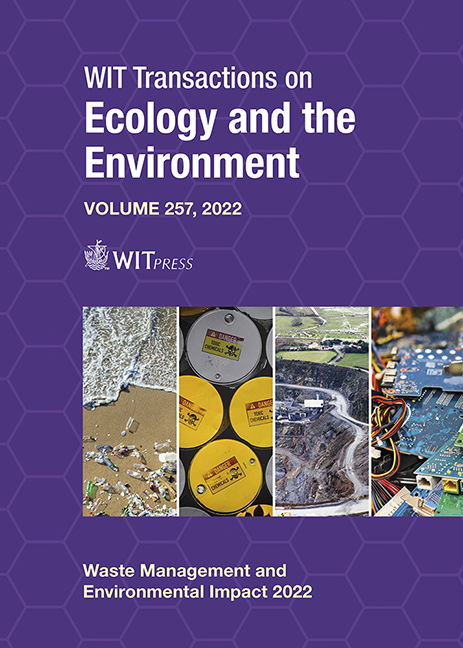BUILDING COMMUNITY TRUST IN THE PROCESS OF ESTABLISHING A LOW- AND INTERMEDIATE-LEVEL RADIOACTIVE WASTE STORAGE FACILITY: THE CASE OF CROATIA
Price
Free (open access)
Transaction
Volume
257
Pages
15
Page Range
145 - 159
Published
2022
Paper DOI
10.2495/WMEI220131
Copyright
Author(s)
GERAN-MARKO MILETIĆ, MATEA MILAK, MATEO ŽANIĆ
Abstract
In Croatia, the radioactive waste management programme foresees the construction of a national central storage for the management of both institutional radioactive waste as well as low and intermediatelevel radioactive waste from the Krško Nuclear Power Plant. According to preliminary procedures, the former military logistic complex in the municipality of Dvor was identified as a single preferred location for the future storage facility. Currently, that location is the subject of detailed field testing and impact analysis. One of the conducted impact studies focused on the perception of the challenges and opportunities for the local community regarding siting the radioactive waste storage in its municipality. A broader analysis of social acceptance of technical risks included the issue of community trust, and in this paper we will focus on that aspect of the problem. More precisely, we were interested in the mechanism of building community trust in the state authorities in charge of the implementation of the national radioactive waste management programme. To better understand this, we relied on the concept of social licence to operate. This concept emphasises a relationship between community trust-building and the perception of justice of the project rationale regarding both its procedural and distributive components. This paper aims to investigate the existence of the indicated relationship in a situation where the decision-making process for the site selection is still ongoing. The data for this analysis were collected in 2020 through a questionnaire from 424 respondents living in the municipality of Dvor. The results of the analysis revealed that elements of both procedural and distributive justice were statistically significant predictors of the level of community trust. However, expectations regarding a fair procedure have a somewhat stronger effect on the trust level than expectations that the project would bring benefits to the community.
Keywords
community trust, radioactive waste management, procedural justice, distributive justice, social licence to operate, Croatia




